Two key areas of IIITH Prof. Deepak Gangadharan’s research these days focuses on the future-ready domains of Intelligent Transportation and using edge computing for efficiency and safety in cyber-physical systems. Here’s the lowdown.
It was a tough journey through multiple streams for the Assistant Professor at IIIT Hyderabad’s Computer Systems Group, whose current research focus is in the design of edge-based IoT systems, real-time cyber-physical systems, hardware/software co-design and fault tolerant real-time systems.
That tough jump into CS at NUS
“While I was always interested in computer science, electronics was the hot seller in those days”, laughs Deepak Gangadharan, who completed his B. Tech in electronics and communication. Following the formula-career trajectory, he would work as a Design Engineer with Pune-based VLSI companies, Paxonet and Conexant before moving back to academia.
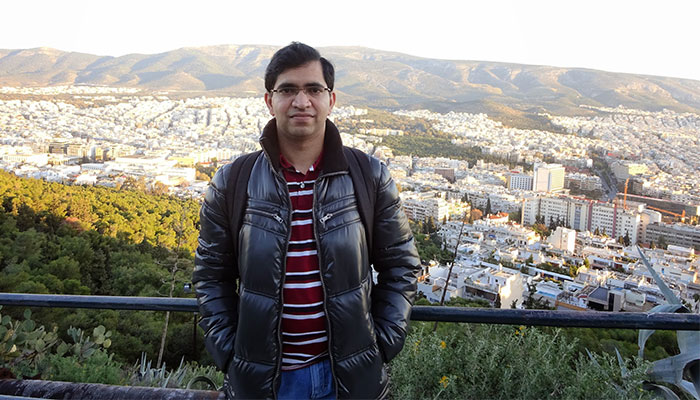
With three years of valuable industry insights, he joined Singapore’s Nanyang Technological University (2005-07) to leverage his expertise in VLSI design by joining a research project to develop FPGA- based hardware architectures for signal processing algorithms. After this stint at NTU where he was introduced to interesting world of research, he embarked on a full-time research career by joining the PhD program in Computer Science at the National University of Singapore. Coming from an electronics background, it was a huge jump for the youngster, who would take eighteen months to grasp the core concepts in computer science. “The learning that I had to go through, for my Ph. D qualification examination at NUS was a lot!”, he admits.
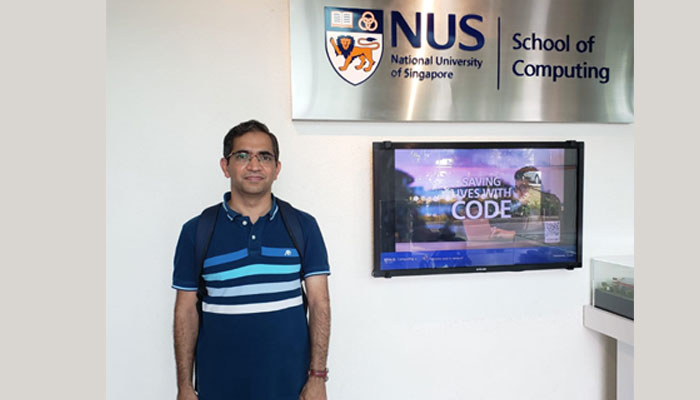
During his PhD program at NUS, he worked on the thesis titled “Quality-Aware Performance Analysis for Multimedia MPSoC Platforms” under the supervision of Prof. Roger Zimmermann and Prof. Samarjit Chakraborty, at the School of Computing. His teaching assignments would give him a wider understanding of research and its applications in the classroom and spurred him to continue his academic career by pursuing post-doctoral research in Europe and the US.
Transformative spell in Europe and USA
Deepak’s post-doctoral tenures at the Technical University of Denmark and at the University of Erlangen-Nuremberg, Germany were memorable, “not only for widening my network and access to researchers and collaborations across Europe, but also for unforgettable trips around Germany and Scandinavian countries”, he remarks. “The work in Denmark and Nuremberg were extensions of my Ph.D work. It was a massive project from the German research foundation, involving 3- 4 German universities. That’s where I got valuable experience in the field of heterogeneous computing systems design. There were many successful publications and collaborations that came out of it”.
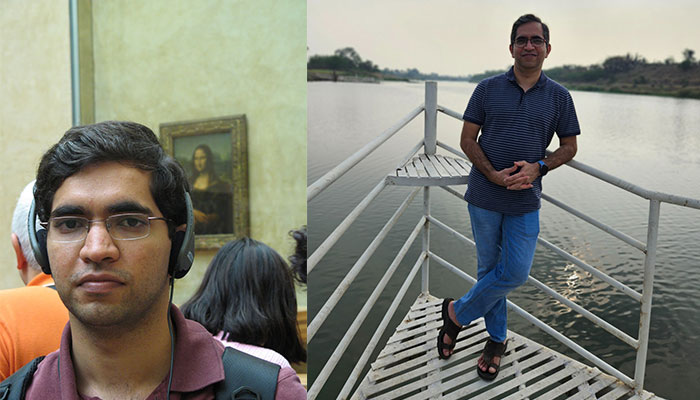
Deepak moved to the University of Pennsylvania in 2015, working under the guidance of Prof. Insup Lee, in the emerging domain of automotive edge computing. One important collaboration was in Intelligent Transportation, with Toyota’s Info Technology Research Center in Mountain View, California. “This is an ongoing work with Prof. Insup Lee that resulted in several publications at prestigious conferences. He gave me the freedom to explore new avenues and even after coming to IIIT, I continued working with him. Our work on “data freshness in safety-critical embedded systems” won the best paper award in the reputed conference IEEE ISORC”, he recalls. “The important part about UPenn was its multicultural environment and collaborations across departments. That’s the intense collaborative work culture that I see here in IIITH”.
Moving to Cyberabad
After four years of post-doctoral research, the next logical step was to become a faculty. “In India, IIIT Hyderabad was my top choice, thanks to my NUS colleague, who pointed out the abundant opportunities for good research here. The IIIT experience has been very good”, he mulls. “As a researcher, I have complete freedom to chart my own path”, notes Deepak who takes courses in Computer Systems Organization, Processor Architecture and Real-Time Embedded Systems. Moreover, new faculty need initial support to strike that balance between teaching load and pursuing their own research goals and IIITH has been really great in that sphere too.
“It was in UPenn that I really got into Cyber-Physical Systems and Intelligent Transportation, that I carry forward now as my primary research areas”, observes Deepak whose recent work includes the realm of Edge Computing in the above areas. When driving, there are services used on the go, like multimedia content from your cloud service, information on restaurants, gas stations or traffic density information from Google Maps. When there is network congestion, accessing data becomes difficult. One project in the domain of Automotive Edge Computing is building the architecture of intermediate edge servers, to be positioned between intelligent automobiles and the cloud, for dynamic data delivery, which is an ongoing collaboration with a faculty from DGIST Korea. Another significant collaboration is with a faculty in Keele University, UK in the area of traffic flow prediction, specifically designing algorithms which can be run on roadside edge nodes.
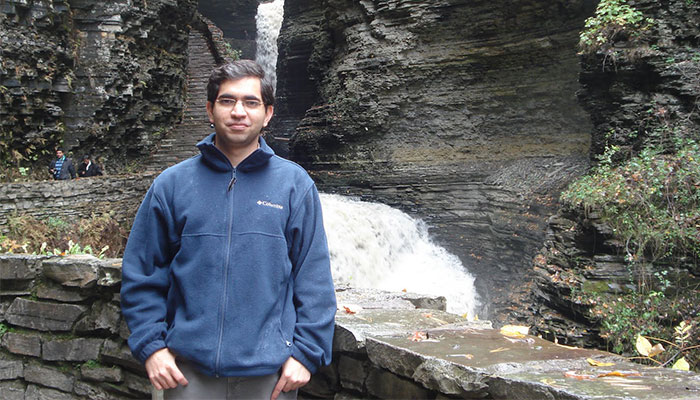
Herbie, the Love Bug and Deepak’s work in cyber-physical systems
If Herbie the sentient car, caught the celluloid imagination of the Boomer generation, it was up to the millennials to make real-time cyber-physical systems work! For the uninitiated, air conditioners, cars or aircrafts are examples of cyber-physical system; connected devices with sensor nodes that collects data, based on which, some control is executed. The air conditioner senses the room temperature and calibrates by increasing/reducing the cooling, based on user requirement.
How does the airbag deploy at the correct moment? Your car comprises of hundreds of processors doing various tasks, some of which are critical in the event of an accident. One of Deepak’s major research areas is in the design of real-time safety critical systems and developing algorithms that guarantee that the system works. With his dual degree and PhD students, the professor is currently exploring techniques to guarantee Data Freshness in such systems.
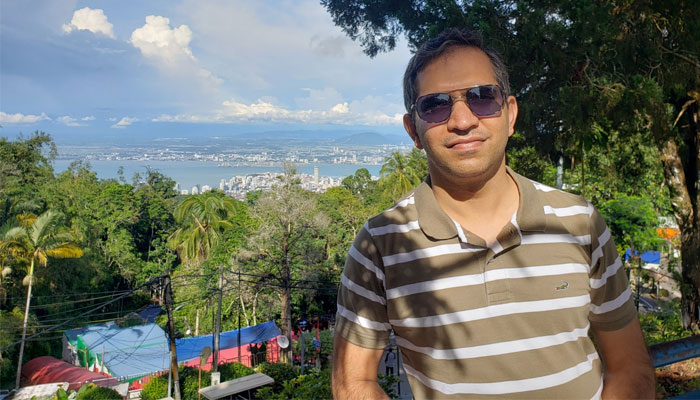
Smart cities, Drones and all that jazz
The IIIT Hyderabad campus is home to India’s first Living Lab, experimenting with connected devices to remotely monitor data on water, air pollution, energy, smart rooms etc. Deepak who has been associated with the Smart City Research Center for over three years, explains. “We are looking at developing Data Lake architecture for IoT systems for efficient processing, storage and retrieval of the large amounts of data, coming in to the SCRC Labs. We are using a very interesting interoperability layer that enables disparate systems to talk to each other”.
A DST-funded project is looking at security systems for unmanned aerial vehicles (UAV). Drones are resource-constrained systems, necessitating small embedded platforms for computationally heavy security algorithms. Designing such a full-fledged security system, factoring in the UAV’s constraints will be the first of its kind. “We are also designing algorithms to detect and mitigate GPS spoofing”, he adds. Additionally, the scholar is lending his systems background expertise, for a project on fault-tolerant control of hexacopter, with Dr. Harikumar Kandath of the Robotics Research Center.
Quantifying driver behaviour for Two-Wheeler EVs
Given the popularity of the ubiquitous two-wheeler in South-east Asia, driver behavior studies are shockingly inadequate. For his work in Time-Series based Fall Detection in Two-Wheelers, the intention was to design a low cost system to understand and quantify driving behavior, in terms of speed, turns and navigation of speed bumps. With EVs gaining popularity, companies operating two-wheeler fleets would benefit from data statistics on how battery consumption is evolving over a period of time, in city-driving conditions.
Deepak has over 30 publications in reputed conferences/journals and has contributed a chapter to a Handbook of Real-Time Computing. Among his most memorable conferences was his first on Embedded systems in Europe in 2009, where he recalls seeing a big group of like-minded researchers passionately discussing various aspects of embedded systems and he could present his work in front of a packed audience. “We are fortunate to be publishing in leading IEEE forums on Embedded Systems, Vehicular Technology, IoT etc.” says the researcher who has served various roles as Session Chair, journal reviewer and on program committees for conferences like IEEE ANTS, HiPC and IEEE INDICON.
Educational gear shifts to intelligent automation
A native of the lush green Palakkad town on the Tamilnadu-Kerala border, Deepak completed his schooling from Kendriya Vidyalaya in Mangalore and Trivandrum, since his father was in government service. “I vividly remember that from a very young age, I was interested in mathematics. That enjoyment gave me motivation and focus to get into engineering”, says Deepak who completed his B. Tech from College of Engineering Trivandrum (1998-2002).
Going from the southern state of Kerala to Singapore was a nice jump. “After the initial years of struggle, I learnt how to deal with stressful situations and how to relax and take things in stride, in the face of rejections”, he smiles. “But my post-doctoral stints in Europe and US were major learnings and it was quite enriching, both personally and professionally. I got to travel with a good set of friends and there were many trips to very good scenic destinations. I was married during my US tenure and we got to see quite a bit of the West and East Coast. Rekha, my wife is a software engineer with IBM and we have a 6 yr. old son Vaibhav who keeps us on our toes”.
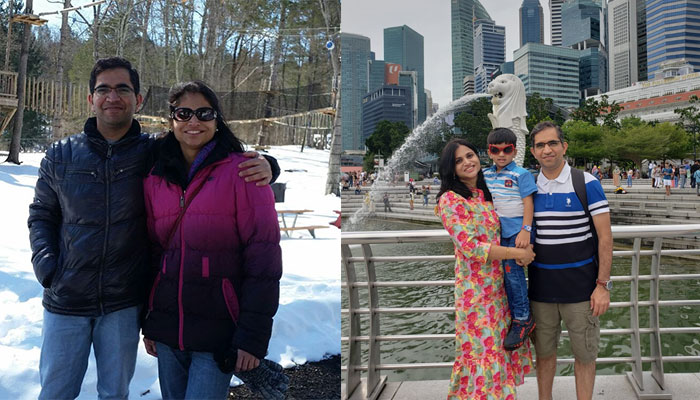
“My music choice has evolved over a period of time”, says the music enthusiast who moved from heavy metal and rock during his undergrad days to the softer melodies of Indian and Western classical in later years. From reading fiction novels during his undergrad days and playing badminton during Ph.D days, Deepak’s extracurricular activities have now whittled down to constitutional exercises and a spot of yoga. I have my work circles and my family. Spending time in those two spheres always energizes me”, he concludes.
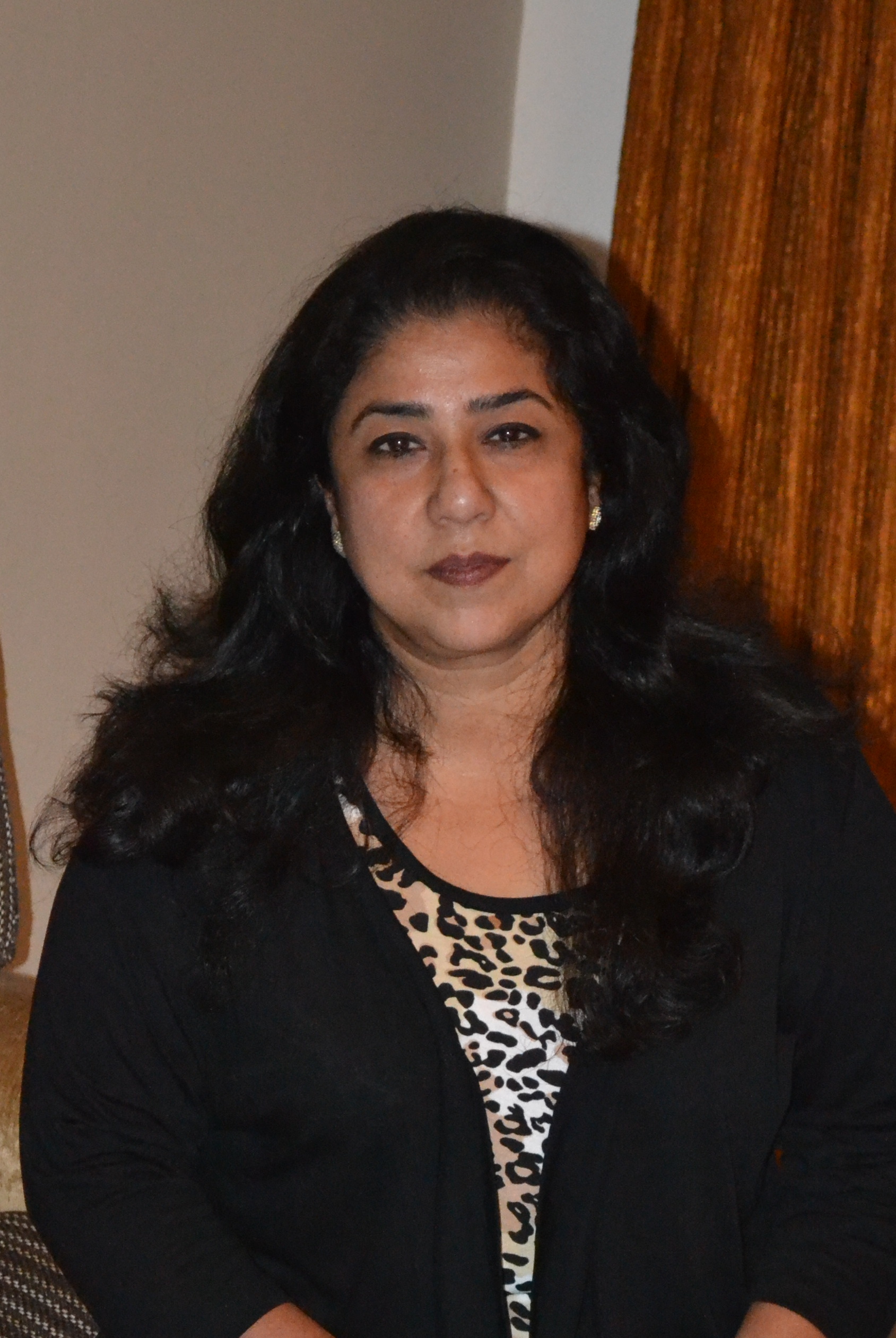
Deepa Shailendra is a freelance writer for interior design publications; an irreverent blogger, consultant editor and author of two coffee table books. A social entrepreneur who believes that we are the harbingers of the transformation and can bring the change to better our world.

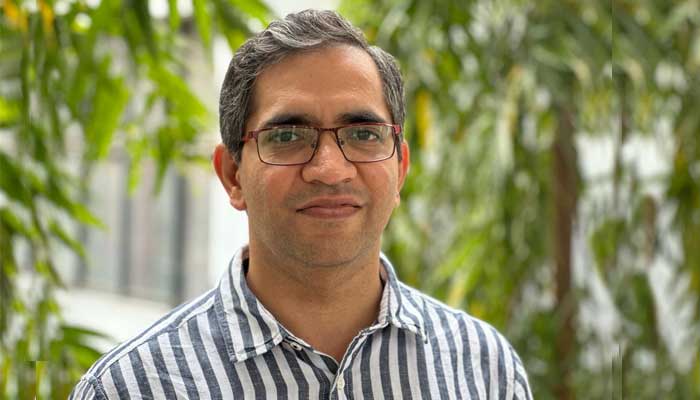
Next post